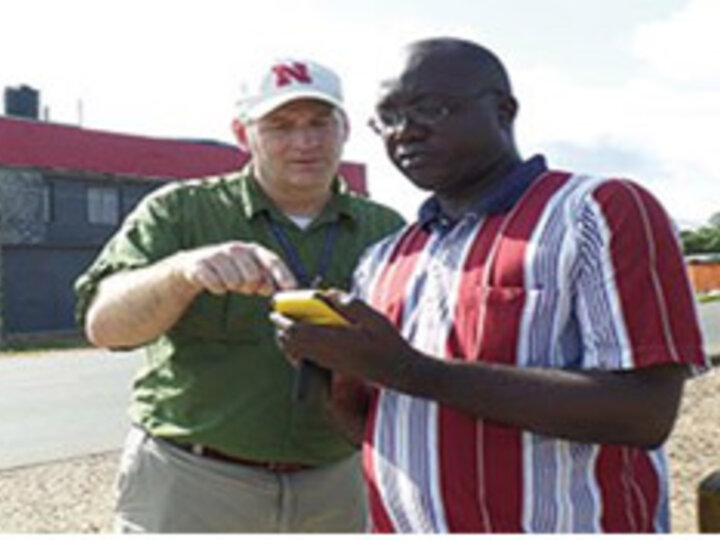Carl Kinkade
MCRP - 1993, 2000
Carl Kinkade (’93, ’00) seems to find trouble. It’s not that the Dannebrog, Nebraska, native looks for trouble. He simply follows it.
Degree Program: Community & Regional Planning

As a first responder for the Centers for Disease Control and Prevention, Kinkade travels on a moment’s notice to wherever disaster strikes. He went to Haiti following the 2010 earthquake that killed 200,000 people. He deployed for Hurricane Katrina, Myanmar after Cyclone Nargis, Kenya for the Rift Valley Fever outbreak and to Saudi Arabia during its pandemic. His task is to work with the governments in affected countries to effectively respond to the latest catastrophe. His work has taken him to 50 countries.
These days, Kinkade is helping Liberia’s Ministry of Health recover from the Ebola outbreak that ravaged West African countries from 2014 to 2016. “If we do our job correctly, there will never be another large-scale outbreak in Liberia,” he said.
Kinkade spends his days as a resident adviser, working with Liberians to rebuild their health system and to establish a real-time disease surveillance system. He understands the risk that comes with his job. “Not everyone wants to go to an Ebola outbreak. I kept raising my hand and kept coming back,” he said. He deployed 10 times to Liberia before moving his family there in September 2016.
The key to stopping the Ebola outbreak, Kinkade said, began with proper management of the dead, which meant initially burning all bodies, even those of people who didn’t die of Ebola, as directed by Liberia’s president. Education also is critical. Telling Liberians they can’t touch their dead loved one is counter-cultural. “If the family didn’t get the chance to bury a brother, a sister, a mother — and if they didn’t die of Ebola, they were angry,” he said.
Over time, he said, Liberians have come around. He works with Liberians throughout the country to track suspected cases and how to report them. After earning his undergraduate degree in 1993 in architecture, Kinkade figured he would practice his craft in a Midwestern city like Chicago. Instead, he headed to the Philippines, all because of a postcard from the U.S. Peace Corps. The card, featuring a solitary person walking a desolate path, encouraged Kinkade.
His two years in the Philippines left him with a new focus — community — and a wife (Mel). “That was a bonus. I hadn’t planned on that.”
He returned to UNL to pursue a master’s degree in community and regional planning. During his matriculation, Kinkade discovered how a tool he used in planning — mapping with geographic information system (GIS) — could be applied to public health.
Rodrigo Cantarero, UNL assistant professor of community and regional planning, approached Kinkade about an internship with the Lincoln-Lancaster County Health Department. “They talked about mapping diseases. They wanted someone to review the city’s comprehensive plans from a public health perspective.” The internship led to a full-time position, and the department became one of the first in the country to realize the importance of using GIS to map public health plans.
The state of Nebraska wanted his services, followed by the CDC. In 2005, he moved to Atlanta and became a CDC first responder.
Kinkade, who is pursuing his doctorate in public health, knows his worldwide assignments wouldn’t have occurred without Cantarero’s recommendation and encouragement. “He made that internship happen with the health department. If he hadn’t taken that active step…”
Kinkade might be practicing architecture somewhere in the Midwest.
By Kevin Warneke